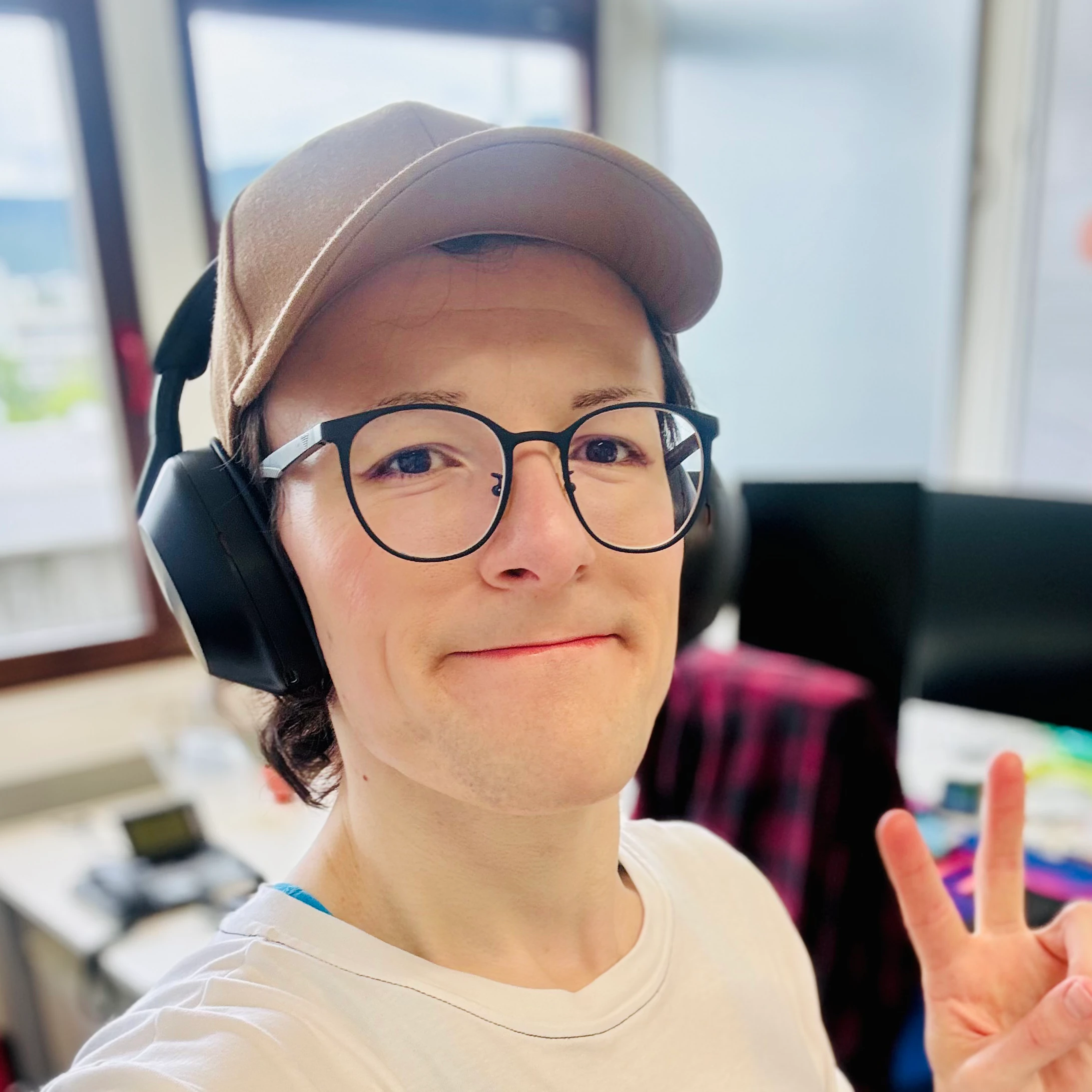Alexandra Stehle, M.Sc.
Alexandra Stehle is a PhD student at the Computing Systems Group at the Institute of Computer Engineering at Heidelberg University. Her thesis encompasses the research of time-series anomaly detection using machine learning, with a focus on deep learning methods, and the evaluation of the efficiency of currently used detection methods.
Alexandra earned her Bachelor’s degree in Mechatronics Engineering at Ulm University of Applied Sciences in 2017. She subsequently enrolled as a Master’s student in Computer Engineering at Heidelberg University, graduating in 2020. She then joined the ATLAS Experiment at CERN as a PhD student funded by a German Federal Ministry of Education and Research Wolfgang Gentner Scholarship, with Heidelberg University as her host university, and Prof. Dr. Holger Fröning as her advisor. At ATLAS, she started her work of developing a practicable anomaly detection method for the ATLAS High-Level Trigger cluster that forms part of the data acquisition and processing pipeline of the experiment. After the end of the scholarship in 2023, she joined the Computing Systems Group, where the work on High-Level Trigger anomaly detection continued, and was expanded by the investigation of the computational and memory intensity/efficiency of contemporary anomaly detection approaches, with the ultimate goal of not only expanding possible application settings for deep anomaly detection. Alexandra is currently applying her acquired knowledge in the field of anomaly detection and transformers to the investigation of the noise resilience of Large Language Models (LLMs) with the goal of improving the energy efficiency of LLM training and inference using novel, inherently noisy hardware.
Research interests
- Deep Anomaly Detection
- Transformers
- DNN Efficiency Characterization
- Energy-Efficient LLM Training and Inference
- LLM Noise Resilience
Publications
- DeepHYDRA: A Hybrid Deep Learning and DBSCAN-Based Approach to Time-Series Anomaly Detection in Dynamically-Configured Systems38th ACM International Conference on Supercomputing (ICS), 272–285, Association for Computing Machinery, 2024
@inproceedings{10.1145/3650200.3656637, author = {Stehle, Franz Kevin and Vandelli, Wainer and Zahn, Felix and Avolio, Giuseppe and Fr\"{o}ning, Holger}, title = {DeepHYDRA: A Hybrid Deep Learning and DBSCAN-Based Approach to Time-Series Anomaly Detection in Dynamically-Configured Systems}, year = {2024}, isbn = {9798400706103}, publisher = {Association for Computing Machinery}, address = {New York, NY, USA}, doi = {10.1145/3650200.3656637}, booktitle = {38th ACM International Conference on Supercomputing}, pages = {272–285}, numpages = {14}, location = {Kyoto, Japan}, series = {ICS}, } - On the Difficulty of Designing Processor Arrays for Deep Neural NetworksIoT Streams for Data-Driven Predictive Maintenance and IoT, Edge, and Mobile for Embedded Machine Learning - Second International Workshop, IoT Streams 2020, and First International Workshop, ITEM 2020, Co-located with ECML/PKDD 2020, Ghent, Belgium, September 14-18, 2020, Revised Selected Papers (Communications in Computer and Information Science), 1325, 229–240, Springer, 2020
@inproceedings{DBLP:conf/pkdd/StehleSF20, author = {Stehle, Kevin and Schindler, G{\"{u}}nther and Fr{\"{o}}ning, Holger}, editor = {Gama, Jo{\~{a}}o and Pashami, Sepideh and Bifet, Albert and {Sayed Mouchaweh}, Moamar and Fr{\"{o}}ning, Holger and Pernkopf, Franz and Schiele, Gregor and Blott, Michaela}, title = {On the Difficulty of Designing Processor Arrays for Deep Neural Networks}, booktitle = {IoT Streams for Data-Driven Predictive Maintenance and IoT, Edge, and Mobile for Embedded Machine Learning - Second International Workshop, IoT Streams 2020, and First International Workshop, {ITEM} 2020, Co-located with {ECML/PKDD} 2020, Ghent, Belgium, September 14-18, 2020, Revised Selected Papers}, series = {Communications in Computer and Information Science}, volume = {1325}, pages = {229--240}, publisher = {Springer}, year = {2020}, url = {https://doi.org/10.1007/978-3-030-66770-2\_17}, doi = {10.1007/978-3-030-66770-2\_17}, timestamp = {Mon, 15 Feb 2021 00:00:00 +0100}, }

 Google Scholar
Google Scholar